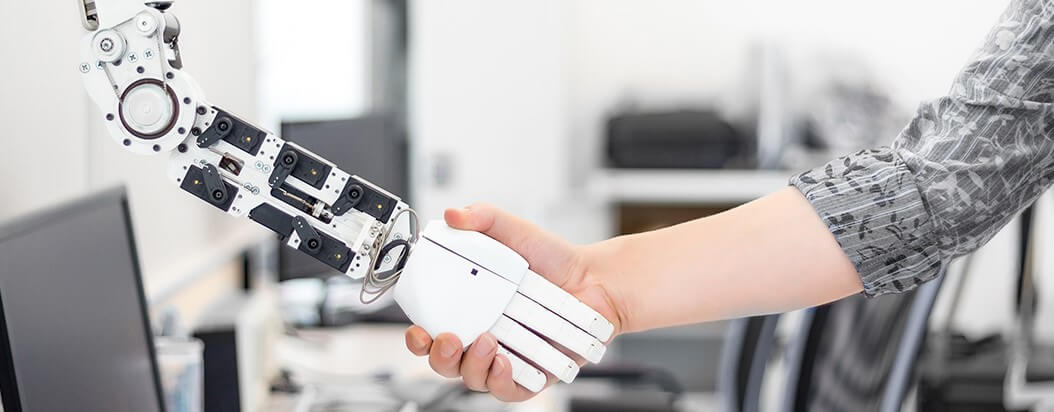Artificial Intelligence – When Your Work Mate is a Robot
The interaction between machines and humans will revolutionize our ideas about work, professional relationships, and how our companies function. Advances in artificial intelligence have increased the use of these “tools” beyond factories or assembly lines, making healthy working relationships with office workers possible.
Robots will help us focus our best skills on the job at hand, eliminating obsolete tasks and, at the same time, generating new tasks with a demand for profiles and competencies based more on non-mechanical skills. Nowadays, in the consumer sector, robots are already working on production, storage, and distribution tasks, alongside professionals who supervise, organize, and operate them.
If there is a characteristic that will define this new professional relationship, it is what is known as “social intelligence,” which is not to say that artificial intelligence will not be able to simulate the relationship between people. It consists of providing a robot with certain information and means to enable it, for example, to provide a service to the public, being able to read whether a client is happy or not from their body language or comments made. Social intelligence makes levels of interaction possible, going beyond a specific task. If we continue along this line of progress, it will make it much more difficult to tell what a “machine” is, like our laptop for example, and form a relationship similar to that of a work colleague.
In a professional situation where robots act more and more like employees, it raises questions that are difficult to answer at this time. For example, should robots be paid? Can they form a workers’ union? Are they the employees or the business? Not to mention more obvious matters like what type of work will they be able to perform? Will they have the capabilities to replace the majority of human employees? What forms of collaboration could there be between a person and a machine, if the machine is able to make its own decisions and work around the clock?
Fortunately, there are still things that we are sure robots will never be able to do, although this “never” is becoming increasingly doubtful due to the extraordinary advances we are witnessing. We humans are, and will ultimately always be, responsible for ensuring that we create and program robots with the ability and intelligence to ensure that they do not pose a threat.
Featured Opportunities
There are no job results within your geolocated area. If you’d like to look at other opportunities:
View All of Our Available Opportunities